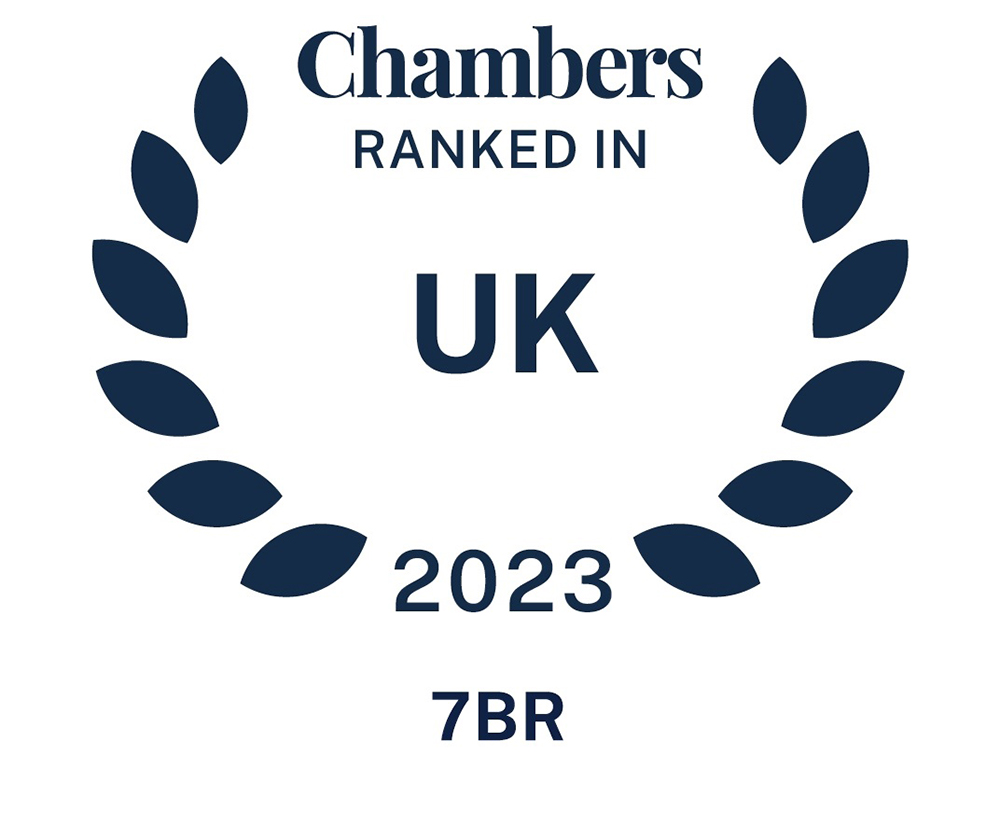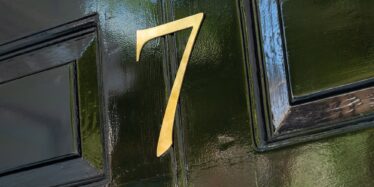Instructing Kate Lumbers
For more information please contact our clerks by calling +44 (0)20 7242 3555.
Kate Lumbers specialises in clinical negligence and personal injury work.
She has been recommended as a leading junior in the Legal 500 and Chambers and Partners for a number of years.
Kate acts for claimants in clinical negligence, brain injury and personal injury in high-value and complex work. She has extensive experience representing families and other interested parties at inquests.
Whilst her manner is empathetic, and she is sensitive to the needs of injured and bereaved lay clients, her focus is on achieving the very best outcomes for those clients and as such she is a tough negotiator.
At the heart of her busy and successful practice is an understanding of, and desire to provide, the very best service to her clients.
Legal Expertise
Clinical Negligence
Described by the directories as ‘a very determined counsel with a pragmatic approach’ and a ‘strong advocate who knows the right questions to ask whatever the forum and identifies the needs of the clients at an early stage, keeping them in mind throughout the process’.
Kate’s clinical negligence practise encompasses a broad spectrum of claims, including birth injury, delay in diagnosis, surgical negligence, spinal injury, loss of limb and sepsis. She has a strong track record in achieving substantial awards for her clients.
Many of her cases involve mis-management of pregnancy by obstetricians and midwives and include delay in delivery, failure to respond appropriately to CTG deterioration, chronic partial hypoxia, acute hypoxia, placental insufficiency, leading to brain damage to the child, and the need for life-long care and accommodation and inability to work.
She is highly experienced with fatal cases and representing the families of those who have died leaving young children.
Notable Clinical Negligence cases
S v NWAH NHS Trust (on-going)
The Claimant alleges there was a failure to diagnose significant placenta previa causing acute hypoxic insult. The Claimant alleges that had the placenta previa been recognised and managed appropriately this would have led to earlier delivery and brain damage to the Claimant would have been avoided. The Claimant requires life-long ,round-the-clock care.
H-A v RF NHS FT (on-going)
The Claimant alleges that there was a period of severe chronic hypoxia around 33 weeks, probably due to cord compression which went unrecognised, as the CTG was incorrectly interpreted as normal. Had that been acted on the Claimant would have avoided the period of damaging fetal hypoxia. The Claimant was born with microcephaly, motor dysfunction and significant learning disability, such that an independent existence is unlikely.
LB v KCH NHS Trust
The claimant underwent a minor surgical procedure to remove fibrosis from the breast. She went on to develop chronic pain, a rare complication of the procedure. It was alleged that the breast surgeon carried out more extensive dissection of the breast tissue than was necessary. Breach of duty was partially admitted. Causation was in dispute and complicated by a history of the Claimant’s ME. She has never returned to work (she was an Oxbridge graduate working in healthcare management). Kate settled the claim at joint settlement meeting for £1.4m
SR v BH NHS Trust
The Defendant negligently failed to diagnose septic hip arthritis when the Claimant was 9 years old. As a result of the failure the Claimant developed avascular necrosis leading to osteotomy. The Claimant would require hip replacement surgery by 40 years of age and as a result of the limitation would be unlikely to be able to pursue his sporting ambitions (he was a talented diver) or a career in elite sports training. Kate settled the claim for £1,150,000.
Inquests & Inquiries
Kate represents interested parties at complex and difficult inquests. She has extensive experience in Art. 2 and jury inquests and is the author of the chapter on Clinical Inquests in Coroners’ Inquests and Investigations, ( March 2021 by LexisNexis )
She has been involved in inquests which have raised failings by GPs, hospital trusts and the 111 service, including, failure to recognise symptoms of volvulus of the gut, misprescription leading to a fatal asthma attack in a child, delays in sending an ambulance to a child, mismanagement of tracheostomy leading to cardiac arrest, failure in the assessment of child with bowel obstruction, mismanagement of cardiac problems, failures in community and in-patient psychiatric services, amongst others.
Notable Inquests & Inquiries cases
Inquest into the death of K, deceased
This was a complex jury inquest where the deceased developed a DVT following orthopaedic surgery. It was complicated by his sudden descent into psychosis following the surgery. Prior to his final admission he was being seen at least daily by the community mental health team, but despite him being increasingly bedbound, none of the mental health clinicians referred him back for anti-coagulation. During the final admission when he was severely psychotic, medics failed to act on the swelling and discolouration that indicated DVT. JK died in hospital of pulmonary embolism. The jury concluded that JK’s death was avoidable.
Inquest into the death of F deceased
F, who was 12 years old, presented to her GP as very unwell. The GP called an ambulance to attend on an urgent basis. The ambulance service did not prioritize the call. By the time the ambulance arrived FJ was in cardiac arrest. The coroner concluded that had the ambulance been appropriately despatched FJ would have survived her Addisonian crisis.
Inquest into the death of C deceased
Kate acted for the family in a two-week inquest that examined the care provided to the deceased, who took his own life whilst an informal inpatient on a psychiatric ward. The jury concluded that “a combination of short-comings in his care…contributed to his opportunity to carry out this act”.
Personal Injury
Kate is highly experienced across all areas of personal injury work. She focuses on catastrophic injury claims arising from head and spinal trauma, multiple injury cases and high-value Fatal Accident Act claims. As such she is used to dealing with complex medical evidence, difficult causation issues and Claimants lacking capacity.
Notable Personal Injury cases
B v M and Others
Representing C, who suffered traumatic brain injury when hit as a pedestrian on a crossing. C lacked capacity, was drunk and had no memory of the accident. The Defendant driver was also drunk. Liability for the accident was in dispute. Causation of injuries was also in dispute with D alleging that C had pre-existing brain injury such that he was already incapable of independent existence, prior to the RTA. Claim settled advantageously at a joint settlement meeting between the parties and subsequently approved by the Court.
S v V
Representing C who suffered traumatic brain injury, when involved in an RTA as a cyclist in collision with a car. C lacked capacity and had no memory of accident. Liability and quantum heavily disputed. Claim settled at a joint settlement meeting. Substantial settlement subsequently approved by the Court.
N v C
Complex case where C had pre-existing psychiatric condition prior to suffering a brain injury at work. Causation of impaired psychological functioning and psychiatric injury in dispute. C’s ability to work impaired. Case settled at joint settlement meeting for £750,000.
Instructing Kate Lumbers
For more information please contact our clerks by calling +44 (0)20 7242 3555.
For help or advice please call +44 (0)20 7242 3555 or complete the form below
A member of the Clerking team will help you resolve your request.
Frequently asked questions
Do you have an out of hours number?
Yes, please call Chambers mainline number +44 (0)20 7242 3555 and you will be directed to the out of hours phone lines.
How can I find out whether 7BR can take my case?
As a direct access client, please visit our direct access page and complete the initial form, a member of the clerking team will then be in touch to discuss the next steps.
Will my barrister deal with all the correspondence?
Some barristers have the ability to “conduct litigation” for direct access clients. Our clerks will be able to assist you as to which of our members are trained and accredited to do so.
How do I instruct a barrister?
Please visit our direct access page for the initial steps on instructing a barrister, or contact our clerks on +44 (0)20 7242 3555.







